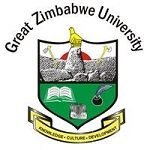Master of Sciences (MSc) Degree in Demography and Population Studies
Preamble
These regulations shall be read in conjunction with the Faculty Regulations for Postgraduate Degree Programmes and General Regulations for Postgraduate Degree which have precedence over Departmental Regulations.
General Description of the Programme
This programme grapples with multiplicity of ways in which human populations change and explores the causes and consequences of that change. The programme covers extensive areas that include demographic techniques, population and development, mortality and epidemiology, demography and globalization among other areas. This multi-disciplinary programme cooperates theoretical and substantive case material which is important in understanding and comprehending the broader range of social and demographic dynamics. Essential to this programme is the study of demographic behavior of people in terms of life events such as birth, marriage, divorce, health, migration and death. This programme focuses on these demographic events in detail showing how these are influenced by the hysterical, economic, societal, cultural and medical factors.
Rationale
The following points below explain the importance of introducing MSc in Demography and Population Studies. There is need for experts who understand population dynamics on their impact on resource use, Governance and Population Growth. It equips students with information on natural and man-made disasters and ways to avert or reduce their impacts. Address the need of experts who understand spacio-distribution of humans to resource and distribution process to avert conflicts. Job markets: IOM, UNDP, CSO, Population Services.
Objectives
The programme seeks to:-
• Equip practitioners in demography and population studies with population dynamics.
• Assist practitioners with disaster management techniques to avert catastrophic situations.
Career Prospects
Demography and population studies prepares graduates for excellent careers in a variety of areas such as civil society, government ministries, NGOs, research organizations, local and international organizations, academia and many other areas.
Consultations
University of Zimbabwe – Institute of Population
ZIMSTATS
Entry Requirements
To qualify for admission into the Masters of Science Degree in Demography and Population Studies, a candidate must normally have satisfied the minimum entry requirements to degree studies for this University as prescribed in the General Academic and Faculty Regulations:
• For normal entry, a candidate must have a relevant Bachelor of Science Degree or its equivalent with an upper second class or better.
• A candidate who does not meet normal entry requirements may, subject to the approval of the senate, be admitted into a programme on special grounds.
Structure of the Degree Programme
- The programme shall be one and half (1½) years full-time.
- The programme shall be offered in accordance with Faculty Regulations
- A programme shall consist of a minimum of ten (10) modules and a dissertation equivalent to two modules.
- Students shall be required to take five (5) modules in semester I, five (5) modules in semester II and two (2) modules in the final semester.
Part I Semester I
Core Modules
Code Module Description
MDPS 501 Demographic Techniques I
MDPS 512 Comparative Demography
MGPS 502 Issues in Qualitative Research
Optional Modules
A student may choose any two (2) modules from the following:
Code Module Description
MDPS 502 Population and Development
MDPS 503 Medical Anthropology and Demography
MDPS 504 Issues in forced Migration
MDPS 505 Topical Issues in Demographic Anthropology
Part I Semester II
Core Modules
Code Module Description
MDPS 506 Demographic Techniques II
MDPS 507 Quantitative Techniques and Statistics
MDPS 508 Mortality and Health Transition
Optional Modules
A student may choose any two (2) modules from the following:
Code Module Description
MDPS 509 Demography and Environmental Issues
MDPS 510 Gender and Migration
MDPS 511 Demography and Globalization
Part II Semester I
Core Modules
Code Module Description
MDPS 513 Dissertation
Assessment
To be admitted into an examination, a candidate must have been registered for that module with the University and completed the modulework in accordance with the General Regulations.
Each module in the programme is assessed on the basis of a three (3) hour written examination and by module work undertaken during the period of study.
The weighting for the examination and modulework shall be 70% and 30% respectively.
A dissertation shall be submitted to the Department in accordance with the
Faculty Regulations.
Determination of Results
To successfully complete a programme, a candidate must pass all registered modules.
A candidate who fails a minimum of two (2) modules within a supplementable range in Part I may be allowed to sit for supplementary examinations.
A candidate who fails any module below a supplementable range shall be required to repeat.
A module may be repeated when next on offer.
The results for each examination shall be published in accordance with the provisions of the General Academic Regulations.
Degree Classification
The final classification for the degree shall be calculated by averaging the three semester module marks.

